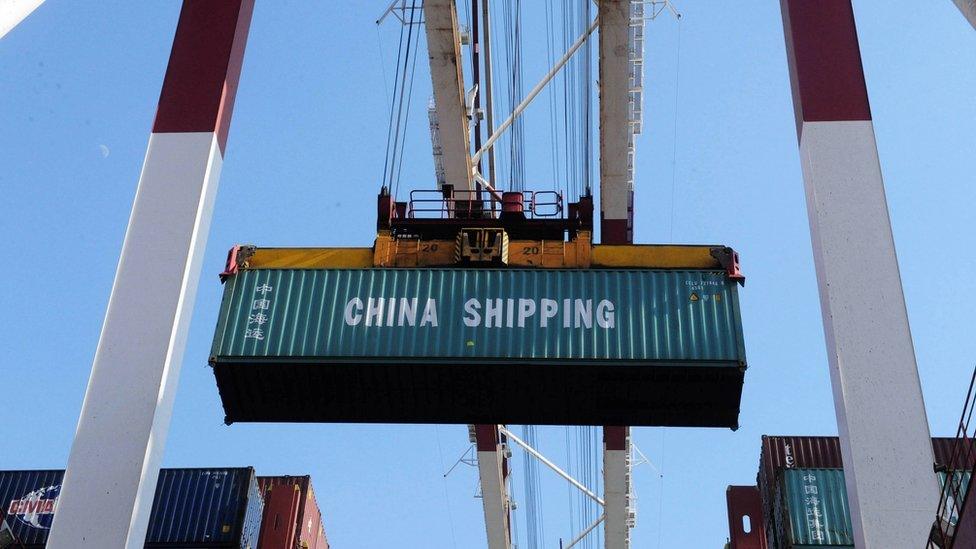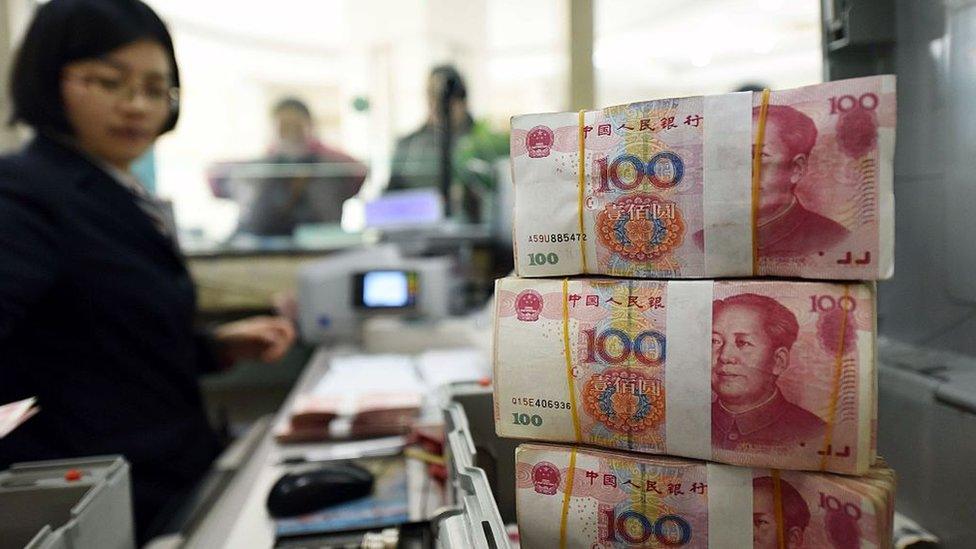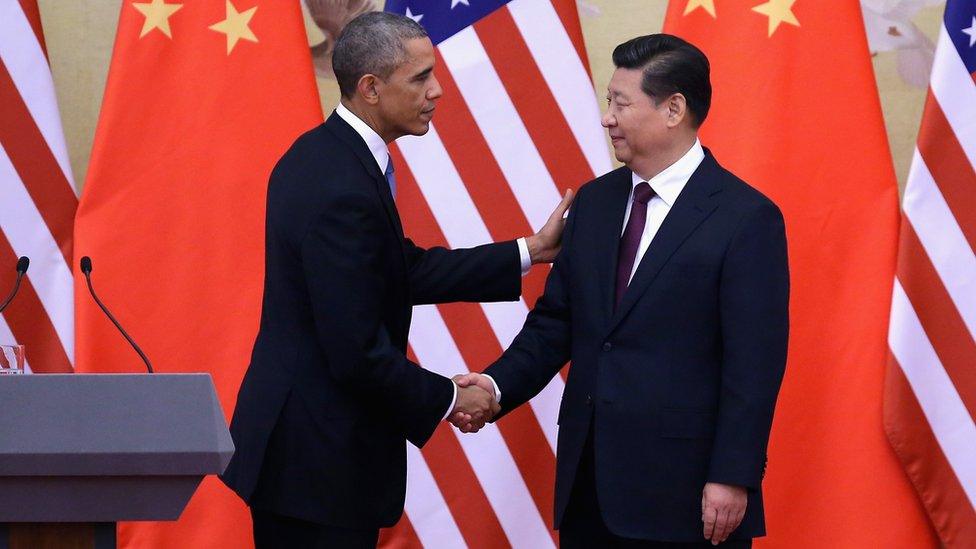China trade activity beats expectations
- Published

China's exports in yuan terms surged 18.7% in March compared to the same period last year, new data shows.
The data marks the biggest increase in overseas shipments in more than a year.
Meanwhile imports declined in March by 1.7% compared to last year, leaving China with a trade surplus of 194.6bn yuan ($30bn; £21bn).
The revival in exports has raised hopes that the world's second largest economy is not as badly affected as many had thought by the global slowdown.
The trade data comes one day after the International Monetary Fund (IMF) again downgraded its global outlook.
The IMF expressed concern over the lacklustre nature of the global economy, even as it noted there has been some recovery from the financial crisis and the recession which came with it.
Later this week China will release its much-anticipated growth data for the first quarter. The forecast is for an expansion of 6.8% for the three months to March.

Analysis: Robin Brant, BBC News, Shanghai
Almost everything is up, so on the face of it good news for China. But when you look at the figures for this time last year, there really was only one way to go.
If you marry the export trade numbers - way past forecasts - with the increase in demand for some raw goods like crude oil and iron ore you see an economy that appears to be on the rebound.
But beware two factors; the government itself has warned that the base line from March 2015 is low. A reminder that observers shouldn't get complacent about the downward pressures still threatening China's economy.
And then there's the figures themselves, can they be trusted?
The government said it hit its target of "around 7%" GDP growth last year but many experts think it's half that in reality.
And as for the strategic shift - to move China away from being an investment-led export economy to something more driven by domestic consumption - these figures suggest it's still only the government that can see off a dangerous economic slowdown, not the Chinese consumer.

- Published22 March 2016
- Published19 January 2016

- Published27 September 2015
